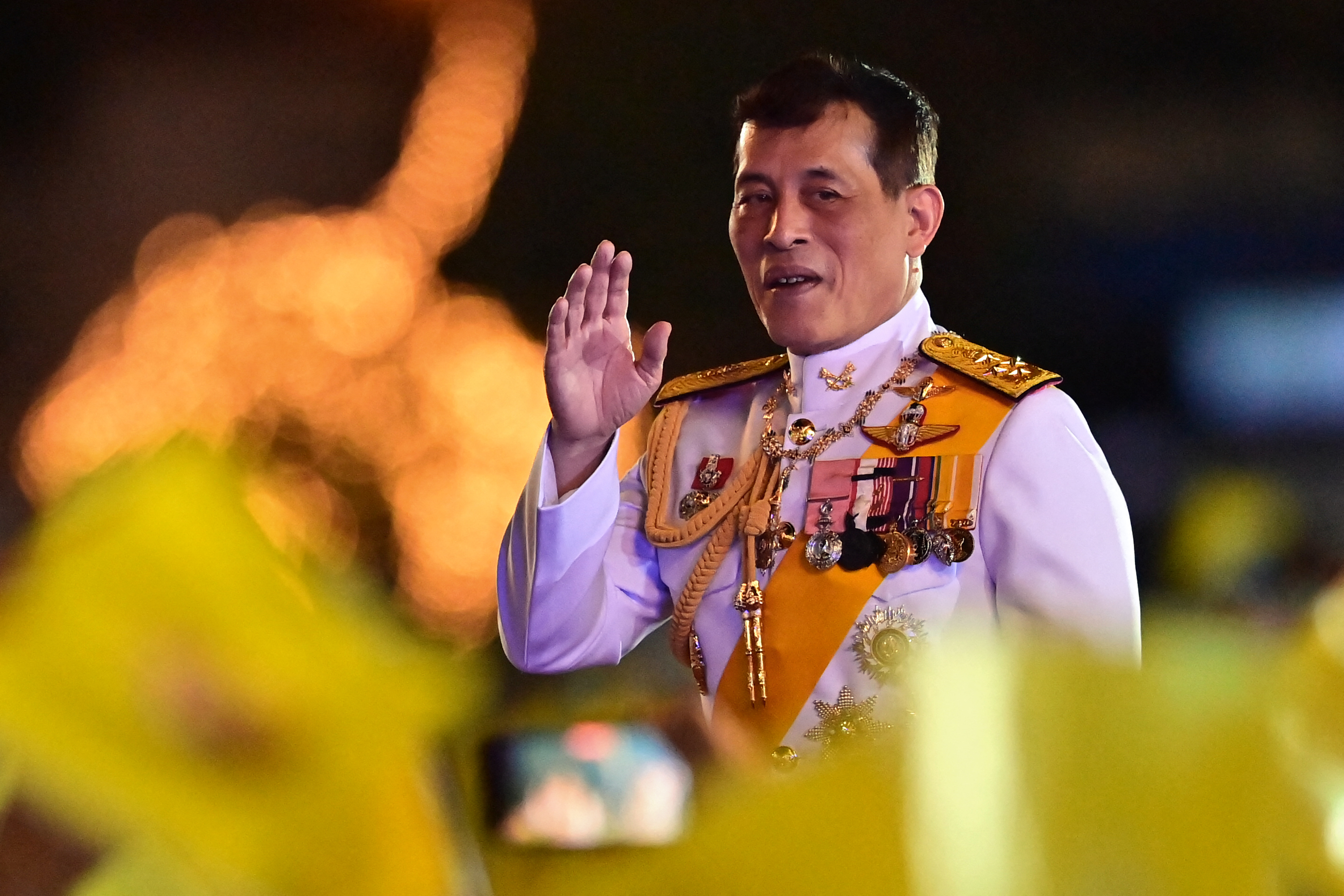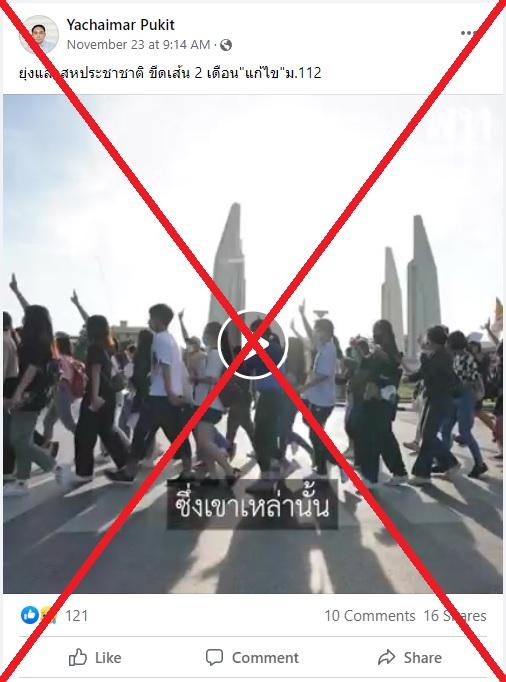
Posts mislead on UN review of Thailand's royal defamation law
- This article is more than four years old.
- Published on December 3, 2021 at 10:27
- 2 min read
- By AFP Thailand
"We're in trouble. The United Nations has given us a two-month deadline to "amend" article 112," reads a Thai-language Facebook post.
It was shared on November 23 in a group with more than 200,000 members.
Article 112 refers to Thailand's lese-majeste law, which prohibits defamation of King Maha Vajiralongkorn and his family.
Thai Lawyers for Human Rights reported that at least 154 people were charged with the controversial law between the start of Thailand's pro-democracy movement in mid-2020 and October 2021.
The post includes a video that features opposition politician Pradermchai Boonchuaylua questioning the Thai police's use of force against demonstrators.

Similar posts circulated on Facebook, Twitter and YouTube.
The posts surfaced online after United Nations member states picked through Thailand's human rights record in a Universal Periodic Review (UPR) -- which all 193 UN countries must undergo every four to five years -- on November 10.
However, the posts are misleading.
While various UN member countries recommended that Thailand amend its lese-majeste law as part of a wide-ranging list of human rights concerns, the kingdom is not obliged to do so.
The UN report states Thailand must respond to its recommendations no later than the 49th session of the Human Rights Council, which is due to kick off on February 28, 2022.
'Not legally binding'
"Thailand will provide responses to these recommendations no later than the 49th session which is scheduled on February 28 - March 25, 2022," Rolando Gomez, spokesman for the United Nations Human Rights Council told AFP.
"It is incorrect to state Thailand has been given two months to amend the lese-majeste law; rather, they have been given some four months to consider their position on these recommendations and then provide their final position."
If Thailand chooses not to follow the recommendations, "there is nothing the Council can do to force them to do so as they are not legally binding," he said.
Kritsadang Nutcharat, a Thailand-based human rights lawyer, said the kingdom was unlikely to amend its lese-majeste law.
"The Thai government, especially under Prime Minister Prayut, has paid little attention to requests from the international community. Thailand's use of lese majeste laws have been raised internationally on several occasions, but they have done nothing but ignore it," he told AFP on December 2.
"On the contrary, the number of political activists have been arrested [under the law] has increased."
According to a Bangkok Post report, Thai foreign ministry representative Nadhavathna Krishnamra defended the law at the recent UN meeting, arguing it "reflects the culture and history of Thailand, where the monarchy is one of the main pillars of the nation".
Thailand’s Anti-Fake News Centre -- a government-run platform within the Ministry of Digital Economy and Society -- said claims it had been given a deadline to amend the lese-majeste law were false.
Copyright © AFP 2017-2026. Any commercial use of this content requires a subscription. Click here to find out more.
Is there content that you would like AFP to fact-check? Get in touch.
Contact us
